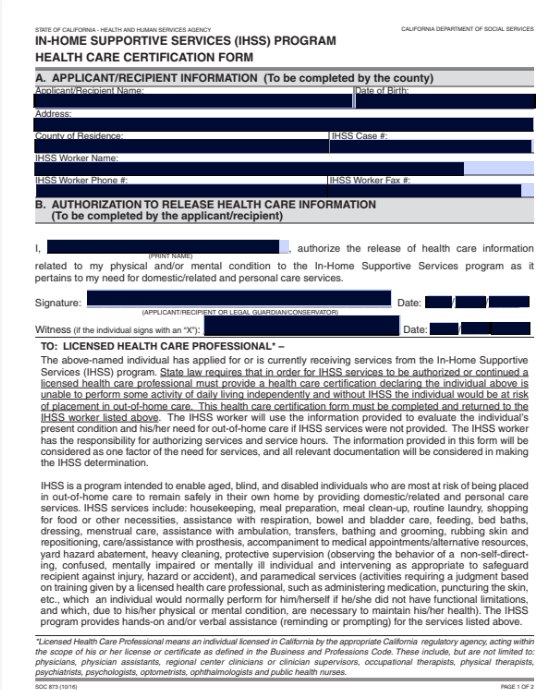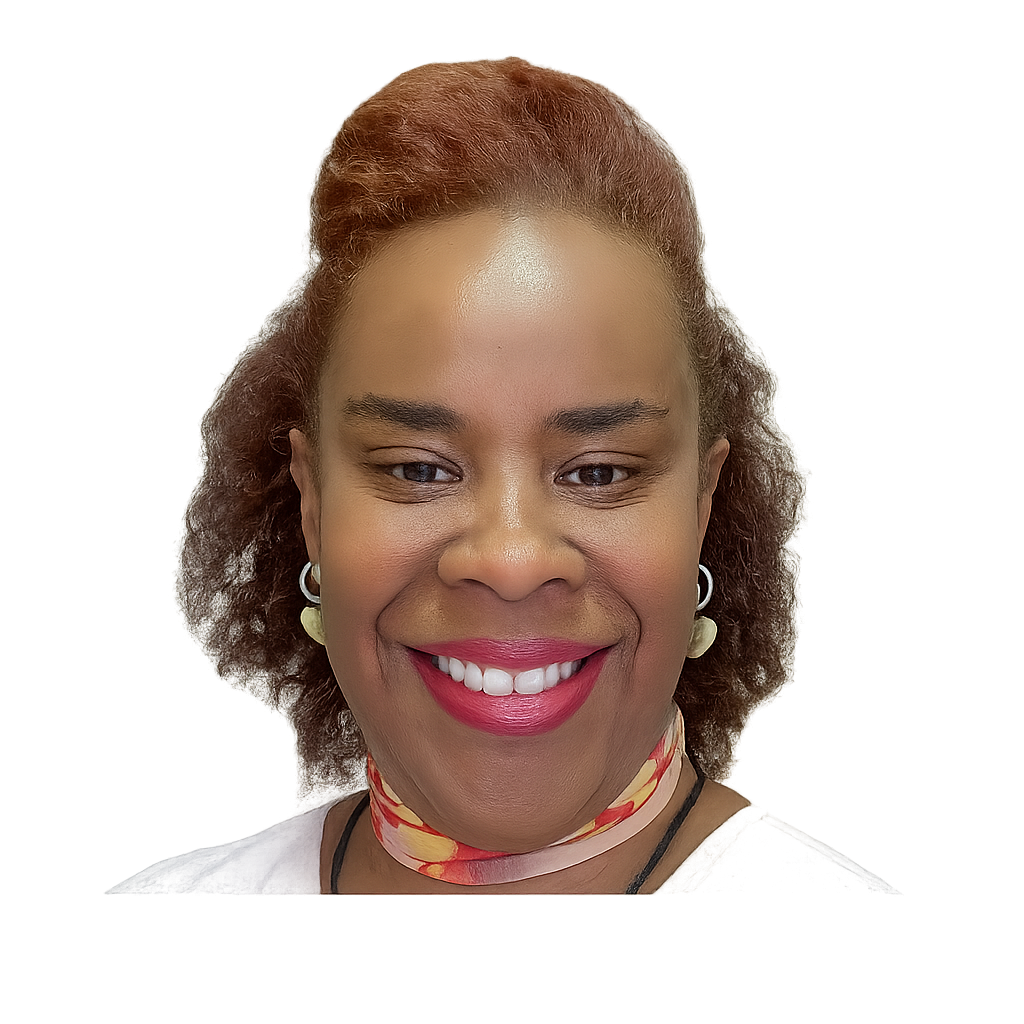Zhanna Grigoryan is an attorney specializing in social, medical, and immigration law. She assists with retirement benefits, disability claims (SSI, SSDI), participation in the IHSS program, and legal status adjustment in the U.S. With years of experience, she works with precision and care, guiding clients through every step — from consultation to appeal. If you’ve been denied, don’t know where to start, or how to submit documents — Zhanna will find the right solution.
Zhanna Grigoryan helped a client apply for IHSS in California — a real story of legal support
A successful case of social assistance that changed one family's life.
When Ms. Client contacted Zhanna Grigoryan, she was in a state of deep exhaustion, anxiety, and hopelessness. Her mother — an elderly woman after a stroke — needed constant care. But due to the language barrier, complicated bureaucracy, and lack of knowledge about social support programs in the U.S., the family could not take advantage of any assistance. The woman was left alone with a problem that was deepening her exhaustion every day. At that very moment, Zhanna's legal support turned out to be crucial, giving the family hope and a concrete action plan.
What is IHSS and why is it important?
IHSS (In-Home Supportive Services) is a social welfare program in the United States that provides funding to caregivers who assist people with disabilities, the elderly, or chronically ill individuals without the need to move them to nursing homes. This program is designed to support those who cannot independently perform basic daily activities — such as eating, personal hygiene, taking medications, or moving around — and need constant or regular help. Unlike institutional care, IHSS allows service recipients to remain in their homes, in a familiar and comfortable environment, close to their loved ones. This is not just financial assistance, but also the state’s recognition of the important social role of family caregivers who sacrifice their time, energy, and sometimes their own careers for the well-being of their loved ones.
The program provides that the state compensates for the hours of care actually provided by a trusted person — it can be a son, daughter, grandchild, or another relative or friend. Thus, IHSS is an opportunity for loved ones to provide quality care at home and at the same time receive legal compensation for their daily labor without abandoning their moral and family responsibilities. On a psychological and social level, this model helps preserve the dignity, independence, and emotional well-being of those who need care.
However, applying for IHSS is not a simple matter. It includes dozens of pages of documents, medical certificates, an assessment by a social worker, and most importantly, the correct presentation of information. Each document must not only be filled out but also justified, supported by facts, certificates, and sometimes even specific wording that meets the internal standards of the program. It is a multi-stage process where it is easy to make mistakes that can result in denial or delay of the application. Moreover, the system itself often changes, is supplemented with new forms or updates, which an ordinary person does not always have time to familiarize themselves with. People who have no experience with such procedures often get lost at the very beginning or spend months trying to gather all the necessary documents on their own, without understanding why they might be denied or why their case is “stuck” with no response.
That is why legal or advisory support is not a luxury, but often a necessity for those who want to apply for IHSS correctly and without unnecessary loss of time, effort, and emotions.
Types of Care Services Covered by IHSS:
Assistance with mobility inside the home and transferring to/from bed
Meal preparation and assistance with feeding
Hygiene tasks: bathing, washing, skin care
Medication reminders and help with dosage
Light housekeeping and maintaining cleanliness in the home
Laundry and care for the recipient’s clothing
Accompaniment to medical appointments and managing care schedules
First contact: assessing the situation
Zhanna began with a detailed consultation during which she carefully listened to the family's situation. She immediately determined that the conditions for applying for IHSS were met, but proper support was needed — both legal and documentary. Each step required a considered approach because an incorrect wording or lack of a required certificate could jeopardize the entire process. Zhanna clearly outlined a further action plan, adapted specifically to this situation.
Preparing for submission: not just documents, but also strategy
Zhanna did not just collect a standard package of papers. She:
- Helped form the medical history to show the level of the mother's dependence on outside assistance;
- Contacted the doctor to prepare the necessary medical documentation;
- Took care of the correct completion of all forms, including SOC 295, SOC 426A, SOC 873;
- Prepared the client for the visit of the social worker, explaining how to properly present the actual amount of help provided (from feeding to assistance with medications).
In addition to working with documents, Zhanna focused on explaining the entire procedure. She addressed the language barrier by translating all key terms and explaining to the client in Ukrainian what exactly was happening at each stage. This helped avoid misunderstandings and increased the level of trust between them. For the first time, the woman felt not alone in a foreign system.
Communication with government agencies
When the documents were submitted, the waiting phase began. Zhanna actively monitored the case status, regularly contacted the IHSS office, and responded promptly to any requests or clarifications. She did not allow the case to “get stuck” in the system, as often happens without proper support. Her oversight ensured a smooth transition between the review stages.
One of the key moments was the interview with the social worker. Thanks to the preparation, this meeting went successfully: the Client was able to clearly explain the exact amount of help she provides, without understating or exaggerating the workload. Zhanna timely emphasized the importance of honesty and accuracy, and also explained how to correctly conduct a dialogue during the assessment.
Result: monthly compensation and peace of mind
A few weeks after the interview, the family received the decision: approval of IHSS with compensation for over 100 hours per month. This meant that the Client could legally continue caring for her mother and receive payment from the state.
Thanks to the support of Zhanna Grigoryan, the entire procedure went without stress, unnecessary mistakes, and time loss. Most importantly — the family felt support, confidence, and was able to focus on what matters most: the health and comfort of a loved one.
What is worth knowing if you plan to apply for IHSS?
- IHSS is not just about money — it is about the legal recognition that you care for another person.
- Success depends not only on the form but on how the story is structured and the situation is presented.
- Mistakes in documents or incorrect behavior during the assessment may lead to rejection.
- Legal support saves you weeks of waiting, nerves, and increases the chances of approval.
Confirmation of Participation in the IHSS Program — Supporting Case Document

Frequently Asked Questions You Rarely Hear About:
Question
Do I need to pay taxes on IHSS payments?
Answer
IHSS payments are not subject to federal income tax if the caregiver and the recipient live in the same household (this is known as a "live-in provider"). However, in other situations, taxes may apply. Payments may also affect eligibility for certain benefits. It’s recommended to consult with an accountant or attorney about your specific case.
Question
Can I apply for IHSS if the recipient is not a U.S. citizen?
Answer
Yes, but with restrictions. The recipient must have a legal status and reside in California. This could be a green card, asylum, or another legal immigration status. Participation in the Medi-Cal program is also required to qualify for IHSS.
Question
Can a friend or neighbor apply to provide IHSS care, or must it be a family member?
Answer
Yes. The caregiver does not have to be a relative. What matters is that the person truly provides care. It can be a close friend, neighbor, or volunteer. However, like everyone else, they must go through registration and background checks.
Zhanna Grigoryan is not just a lawyer, but support for those who do not know where to begin. In her practice, she has dozens of successful cases in the field of social support: IHSS, retirement benefits, disability, immigration matters. But most importantly — it's the people she helps to find confidence in a new country.
If you need help with IHSS or other social support programs in the U.S. — contact Zhanna. She makes the complex simple.






























